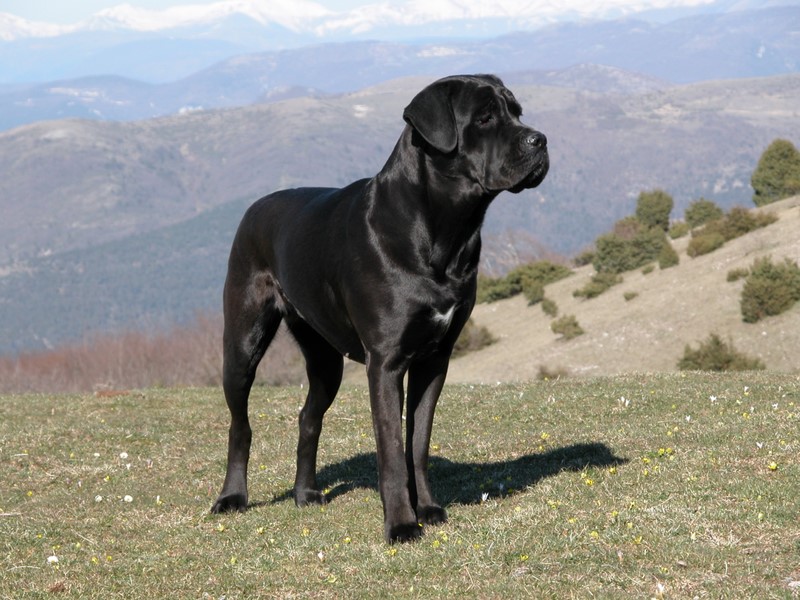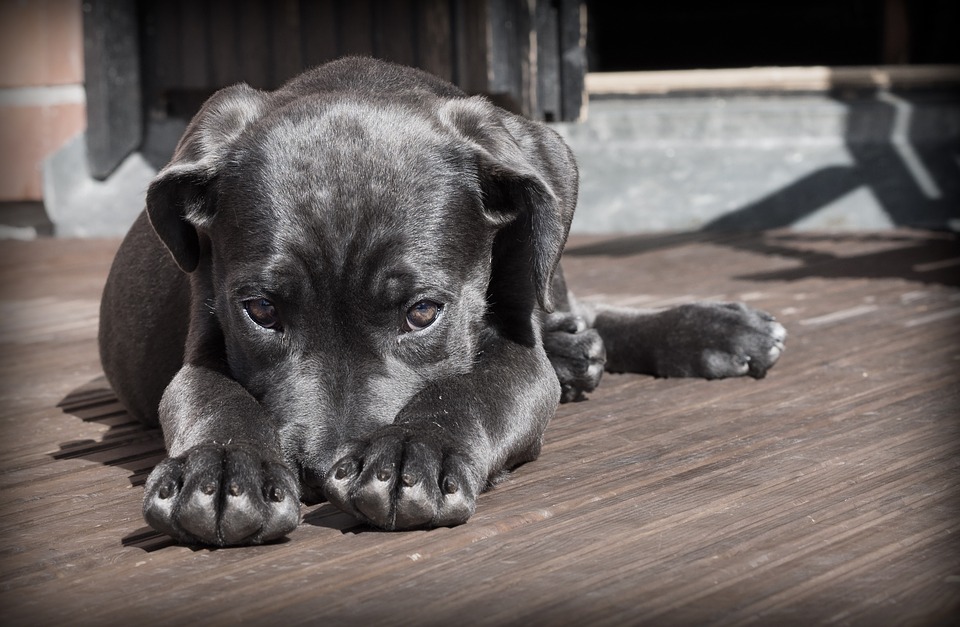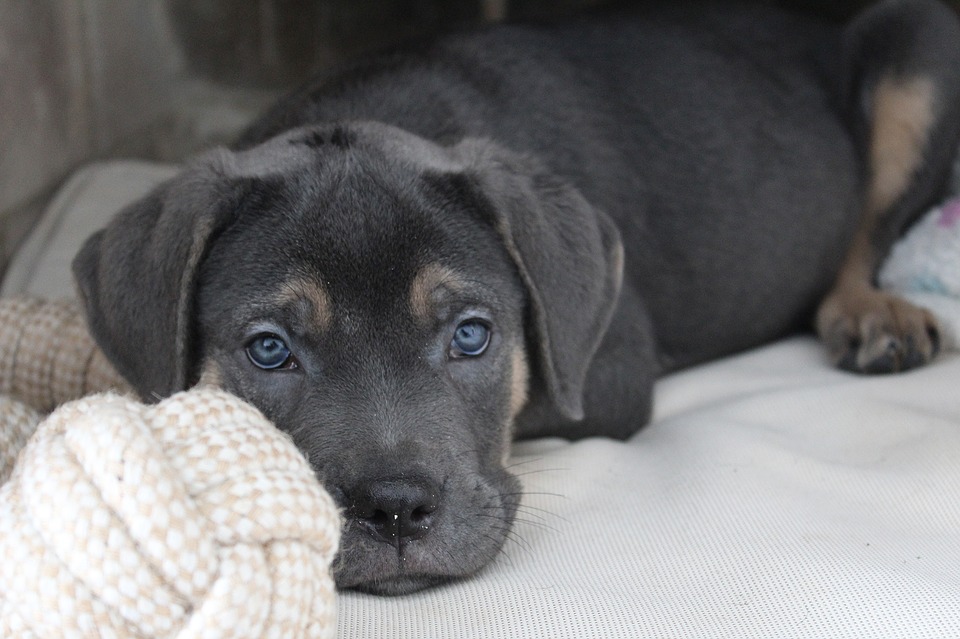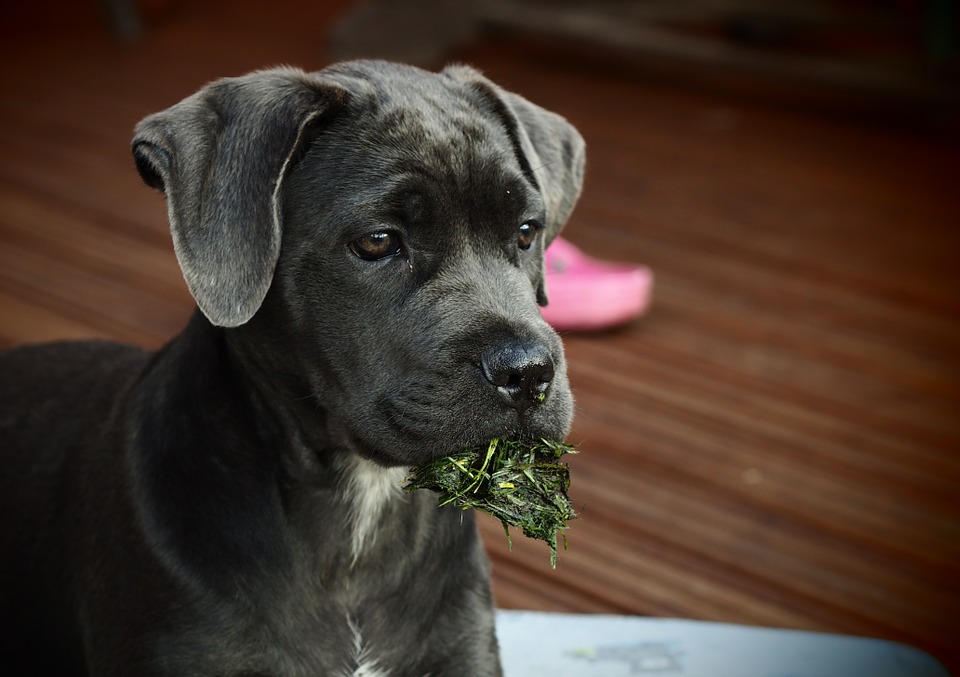
Italian Cane Corso: Your new pet
History of the Breed:
The Cane Corso, also known as the Italian Mastiff, has a rich history dating back to ancient Roman times. Originally bred as a guardian and working dog, it was prized for its strength, loyalty, and protective instincts. Used primarily on farms to guard property, livestock, and families, the breed’s name «Cane Corso» is derived from the Latin word «cohors,» meaning guardian or protector.
Physical Characteristics:

The Cane Corso is a large and muscular breed, with a powerful build and a distinctively imposing presence. They typically stand between 23 to 28 inches tall at the shoulder and weigh anywhere from 90 to 120 pounds. Their short coat is dense and coarse, usually coming in solid colors such as black, fawn, or gray. Their ears are traditionally cropped, although this practice is becoming less common. With a broad head and strong jaws, the Cane Corso exudes an air of strength and confidence.
Health and Basic Care:
Like all breeds, Cane Corsos are susceptible to certain health issues, including hip dysplasia, bloat, and certain cardiac conditions. Regular exercise, a balanced diet, and routine veterinary care are essential for maintaining their health and well-being. Additionally, early socialization and obedience training are crucial to ensure they develop into well-adjusted and obedient companions.
Temperament and Personality:

Cane Corsos are known for their calm and steady demeanor, as well as their deep loyalty and devotion to their families. While they are typically affectionate and gentle with their loved ones, they are also fiercely protective and may exhibit aggression towards unfamiliar people or animals if not properly socialized. Early training and consistent leadership are essential to channel their protective instincts in a positive direction.
Training and Socialization:
Due to their intelligence and independent nature, Cane Corsos require firm and consistent training from a young age. Early socialization with a variety of people, animals, and environments is crucial to prevent behavioral issues such as aggression or fearfulness. Positive reinforcement techniques, including praise and rewards, are most effective in shaping their behavior and building a strong bond with their owners.
Nutrition:

A high-quality diet tailored to their age, size, and activity level is essential for maintaining the health and vitality of Cane Corsos. Feeding them a balanced diet consisting of lean proteins, healthy fats, and carbohydrates will help support their muscular build and overall well-being. It’s important to monitor their food intake and avoid overfeeding to prevent obesity, which can exacerbate certain health issues.
Suitable Environment:
Cane Corsos thrive in homes where they have plenty of space to move around and exercise. While they can adapt to apartment living with sufficient daily exercise, they are happiest in homes with fenced yards where they can roam and explore. Additionally, they require regular mental stimulation and interaction with their families to prevent boredom and destructive behaviors.
Frequently Asked Questions:
Is a Cane Corso a good family dog?
- Yes, Cane Corsos can be excellent family dogs when properly trained and socialized from a young age. They are loyal, affectionate, and protective of their loved ones.
Is a Cane Corso more aggressive than a Pitbull?
- Aggression levels can vary among individual dogs, regardless of breed. Proper training and socialization are key factors in determining a dog’s behavior, rather than breed alone.
Can a Cane Corso be a house dog?
- Yes, Cane Corsos can live indoors as house dogs, provided they receive plenty of exercise, mental stimulation, and social interaction with their families.
Are Cane Corsos difficult to own?
- Cane Corsos are a large and powerful breed that requires firm leadership, consistent training, and early socialization. While they are not necessarily difficult to own, they do require a dedicated owner who can meet their needs.
Can Cane Corsos be left alone?
- Cane Corsos can tolerate being left alone for short periods, but they thrive on human companionship and may become anxious or bored if left alone for extended periods. They do best in homes where they receive plenty of attention and interaction with their owners.
How long do Cane Corsos live?
- On average, Cane Corsos have a lifespan of 9 to 12 years, although individual longevity can vary depending on genetics, health care, and lifestyle factors.
How smart are Cane Corsos?
- Cane Corsos are intelligent dogs with a strong independent streak. They are quick learners and can excel in obedience training with proper motivation and consistent guidance from their owners.
Italian dog names for your male Cane Corso
If you have a Corsican dog and are looking for a suitable name for it, you may be able to use one of the following:
Aaron, Abaco, Abram, Afro, Acer, Astra, Achille, Ala, Adelchi, Alex, Alec, Alfio, Ahmik, Amedeo, Akamu, Andra, Andrea, Alton, Argo, Amos, Arana, Aragon, Attila, Aramis, Arrigo, Asterix, Astro, Atreyo, Axel, Blue, Baffo, Baldo, Baloo, Barolo, Barret, Barù, Basco, Biagio, Biscotto, Blaster, Blues, Bomb, Boogie, Boris, Brenno, Brutus, Brigant, Buck, Bunter, Byron, Chivas, Cachito, Ciro, Caleb, Carlos, Ciriaco, Cash, Casper, Coda, Cassian, Confetto, Cassius, Corallo, Corsaro, Catullo, Celtic, Cosimo, Cesare, Chanson, Chayton, Cherif, Chester, Chucky, Ciak, Cincin, Cletus, Clint, Cocain, Cody, Cognac, Colt, Conan, Confucius, Connor, Corsaro, Dexter, Diego, Diuk, Dollar, Dusky, Dylan, Duncan, Ector, Egon, Eliot, Ferro, Fico, Florian, Folk, Frodo, Frizzi, Fuli, Fuste, Galax, Gascon, Geronimo, Giotto, Gaucho, Giove, Giuba, Grisli, Gordon, Gringo, Gustav, Hachiko, Harley, Harlock, Helki, Hulk, Ian, Icarus, Idefix, Idro, Itaco, Jack, Joti, Jackpot, Jago, Jason, Jafar, Jazz, Jester, Julina, Kaleo, Kaleb, Kaiman, Kaliman, Kangee, Kele, Kilian, Kiko, Kobe, Laio, Lancelot, Lapse, Lennox, Lester, Lexter, Lillo, Linus, Wolf, Lothar, Lukas, Male, Makya, Malik, Mota, Manfred, Mastino, Merlin, Mastin, Milo, Neo, Nawat, Nemo, Noshi, Oliver, Omero, Orpheus, Orion, Orc, Otello, Pascal, Patwin, Poncho, Pongo, Rambo, Red, Roll, Rufus, Sax, Scott, Scudo, Tango, Titan, Tex, Thor, Tito, Tobias, Guy, Tyson, User, Walker, Wolf, Woody, Xeno, Xero, Yago, Yukon, Zander, Zeph, Zero, Zoom.
Italian dog names for your female Cane Corso
Abey, Ali, Abigail, Achea, Aida, Alepi, Akemi, Akira, Alma, Beloved, Arlena, Artemide, Aura, Armpit, Bafo, Balma, Bea, Bella, Belinda, Belle, Berta, Beverly, Betti, Bimba, Bocha, Bonnie, Brenda, Brigitta, Brook, Brunilla, Belica, Caia, Cabiza, Catuya, Calypsa, Camelia, Candy, Carol, Cassandra, Castalia, Carolita, Catinka, Cayenne, Chita, Chantal, Cheope, Chepi, Girl, Cika, Coda, Contessa, Cuba, Cucca, Daffy, Daphne, Dana, Dinasty, Goddess, Doga, Dolcezza, Diva, Dulcinea, Edith, Eika, Elektra, Ella, Emilia, Eureka, Eve, Evita, Fabia, Fabula, Fata, Fanta, Febe, Fiamma, Fila, Fiona, Flora, Frida, Fujico, Gaia, Galatea, Ghia, Gilda, Ginger, Gioconda, Gitana, Glenda, Glory, Grotto, Haga, Halia, Heidi, Hella, Hula, Ibiza, Imala, Imma, Isis, Itaca, Jade, Jamba, Jamila, Jola, Juna, Kaja, Kaliska, Kara, Kiara, Kimba, Kimi, Kira, Kuka, Kora, Kreta, Laila, Lalita, Lana, Lassie, Lola, Lolita, Luna, Luvi, Maga, Magena, Malka, Mani, Melinda, Mika, Mila, Muriel, Mariel, Nala, Namid, Naomi, Nikita, Nita, N ube, Nephis, Ophelia, Olivia, Oxana, Paprika, Phoebe, Pupil, Rachel, Raisa, Riva, Roxie, Runa, Saba, Sandia, Saura, Scarlet, Selby, Shada, Soyala, Tabata, Taylor, Thelma, Tiara, Trudy, Ulla, Uliana, Uma, Ursella, Waika, Wanda, Wapa, Wilma, Winona, Xantia, Xiara, Xara, Xena, Yepa, Yira, Yuki, Zaira, Zara, Zavanna, Ziva, Zoe, Zola, Zuma.
